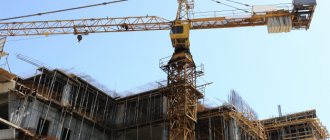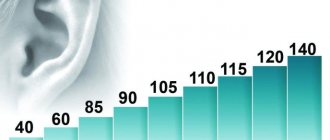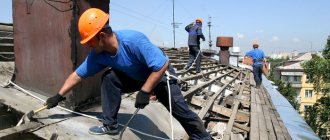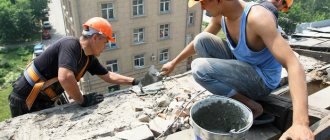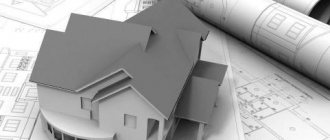Construction and technical expertise and its types
Expertise
- this is a study carried out by a person specially attracted for this purpose - an expert who has the required knowledge that its initiators do not possess.
The examination is carried out with the aim of resolving controversial situations and establishing facts of interest. Forensic examination
is a procedural action consisting of conducting research and giving an opinion by an expert on issues the resolution of which requires special knowledge in the field of science, technology, art or craft, and which are put before the expert by a court, judge, investigative body, person conducting the inquiry or investigator, in order to establish the circumstances to be proven in a specific case.
When conducting a forensic examination, the expert is endowed with a special procedural status, which determines the special procedure for its appointment, a strict list of subjects who can appoint and conduct it, as well as clearly established rights, duties and responsibilities. An extrajudicial examination
is a study carried out by a person specially engaged for this purpose - an expert who has the required knowledge that its initiators do not possess.
Extrajudicial examination is not related to legal proceedings; its scope of application is civil legal relations. However, it may be the basis for a trial or the initiation of a criminal case if, as a result of its conduct, sufficient facts for this are established. Repeated examination
is an examination carried out if the conclusion of the primary examination is found to be unfounded or raises doubts.
What is construction expertise?
Construction examination is a type of forensic engineering and technical examination, a procedural action that consists of two stages: examination of the construction site and preparation of an opinion on the issues raised by the competent authorities. The research base is scientific knowledge and practical observations of highly qualified specialists in the construction industry.
Most often, construction expertise is one of the ways to resolve the conflict between the developer and the customer. The customer wants to make sure that the construction and installation work performed by the developer is carried out completely and in compliance with all standards. He himself does not have the necessary knowledge, but a construction expert does. An expert's conclusions can be a significant help in court proceedings.
In what cases is a construction and technical examination or forensic examination of a house necessary?
Work is carried out in the following cases: 1. If necessary, document the technical condition of buildings, wear and tear of structures, building structures, internal utility networks and equipment, external utility networks (including for the court); 2. If necessary, establish and record the quality of completed (in progress) construction, installation, insulation and finishing work (including for the court); 3. If necessary, determine the physical wear and tear of the building, building structures, internal utility networks and equipment, external utility networks (including for the court) and record its value; 4. If necessary, determine and record the quality of the work performed (in progress) on the development of design and working documentation (including for the court); 5. If necessary, record the volume and determine the cost of completed, uncompleted, poorly performed (performed) construction and installation, insulation, finishing, as well as design work (including for the court); 6. If necessary, determine the degree, volume and cost of damage caused during fires, floods, natural disasters, etc. (including for the court) 7. If necessary, perform reviews of the conclusions and reports of other organizations and persons (including for the court) ; 8. When demolishing a building; etc.
Rights and obligations of the parties during the examination
The law provides plaintiffs and defendants with wide opportunities in ordering an examination. You need to know how to use them, because this can seriously influence the research.
The parties to the process have the right:
- petition the court to order an examination or object to the appointment of a study;
- select an expert or expert organization, as well as determine the circle of experts (organizations) for whom the appointment of an examination is undesirable;
- determine the list and content of questions (within the subject of research);
- collect and present to the court materials for research (they must be attached to the case);
- draw the attention of the court and the expert to important circumstances (as a rule, this is done in a petition to commission an examination);
- participate in the conduct of the research (inspecting the research object at the appointed time) and give the expert his explanations.
Download the application for appointment of a construction expert (sample)
If you use your capabilities correctly, you can choose the most competent expert, direct the research in the right direction and avoid its incompleteness.
Either party has the right to consult with an expert regarding the appointment of an examination . This helps to correctly determine the questions and materials for research. But it should be borne in mind that the expert must be objective, guided by knowledge and experience, and not by the opinions of the parties. Expert opinions are often called into question, especially by those parties to the proceeding who do not agree with the expert's conclusions and are at risk of losing their case because of the opinion. Therefore, preliminary communication with an expert should be limited exclusively to the professional sphere.
The parties have fewer responsibilities than rights, but they can play a serious role . When ordering an examination, the court has the right to oblige the participants in the process to take certain actions. Within the framework of the STE, the obligation to admit an expert to the research object and (or) create conditions for the performance of expert functions at the object is often established. The court may also oblige the expert to provide the necessary materials (documents) for research or to provide access to them. Failure to comply with court-imposed duties is a violation in itself, which may result in a fine. But if because of this it turned out to be impossible to conduct an examination, then the court may accept the position of the party to confirm which the research was ordered as proven.
Solvable examination tasks
Depending on the goal, the tasks may include: 1. Obtaining a basis for allocating funds for repair and restoration activities (including through the court); 2. Determining the technical condition of a building or structure before purchasing or renting; 3. Obtaining grounds for carrying out repair and restoration work (including through the court); 4. Documentary confirmation of the quality of completed construction, finishing and installation work to the customer (can be used in court); 5. Identifying those responsible for the low quality of work performed (including for the court); 6. Collection of funds from those responsible for poorly performed or unfulfilled work (including through the court); 7. Collection of funds from persons whose actions led to the deterioration of the technical condition or emergency condition of structures, buildings, structures, etc. (including through the court); 8. Establishing the amount and confirming the fact of embezzlement of funds (including for the court); 9. Putting a building or structure into operation through the court; 10. Carrying out a scheduled inspection of buildings, structures, structures, internal utility networks and equipment, external engineering networks; 11. Carrying out inspections of buildings, structures, structures, internal utility networks and equipment, external engineering networks as prescribed by the bodies authorized to conduct inspections of operation and supervision; 12. Identification of those responsible for causing damage as a result of a fire, flood, etc. (including for the court); 13. Collection of funds from persons responsible for causing damage due to flooding, fire, etc. (including through court); 14. Establishing the safety and admissibility of carrying out measures for redevelopment in premises, installation and dismantling of individual structures (including for the court); 15. Identifying those responsible for deteriorating the quality of stay in the premises, increasing noise levels, deteriorating or stopping air exchange, increasing humidity, etc. (including for the court); 16. Establishing the cause of accidents and destruction of buildings, structures, building structures during construction and installation work and their operation (including for the court); 17. Establishing the cause of accidents during construction and installation work, as well as the operation of buildings, structures, structures, internal utility networks and equipment, external utility networks (for ships); 18. Identifying those responsible for accidents that occurred during construction and installation work, during the operation of buildings, structures, structures, internal utility networks and equipment, external utility networks (for the court). 19. Establishment and documentary recording of the fulfillment (non-fulfillment) of the obligations undertaken by counterparties to carry out construction, installation, insulation, finishing work, supply of equipment, materials, structures, etc.; etc.
When is a construction inspection appointed?
In cases where the investigation and trial of criminal and civil cases require special knowledge in the field of design, construction, operation and repair of buildings and structures.
An interested party (plaintiff/defendant) or the prosecutor's office can order a construction examination. The court can also initiate investigations.
The need to use special knowledge arises:
- when resolving disputes regarding ownership of real estate;
- when considering disputes arising from construction contracts;
- to determine the types, volume, quality and cost of construction work performed, buildings, structures and structures being erected and operated;
- in the investigation of cases of administrative offenses related to establishing the correctness and legality of construction and operation of construction projects;
- in establishing the causes and magnitude of material damage caused to residential buildings and apartments as a result of improper construction or operation of engineering systems;
- in the investigation and trial of criminal cases regarding accidents, breakdowns and destruction in construction;
- to establish compliance with the requirements of special norms and rules governing the processes of design, construction, operation, reconstruction (repair), dismantling and disposal of construction projects.
Stages of work, types of examinations
The work is carried out in four stages: - obtaining the grounds for conducting the examination; — preparation for the examination; — preliminary (visual) examination; — detailed (instrumental) examination.
The sequence of actions and scope of work at each stage include:
1. Obtaining grounds for conducting an examination:
The basis is: - court decisions to conduct an examination (when considering criminal cases);
— court ruling on conducting an examination (when considering civil cases); — contract for conducting an examination. 2. Preparatory work:
- familiarization with the object of examination, its space-planning and design solutions, characteristics of utility networks using materials from engineering and geological surveys: - selection and analysis of design and technical documentation (if any);
— analysis of contractual documentation; — drawing up a work program (if necessary). 3 .
Preliminary (visual) examination: - a complete visual examination of building structures, structures, utility networks and equipment in order to identify wear, defects, damage and other violations of the requirements of regulatory documentation based on external signs with the necessary measurements and recording.
4 .
Detailed (instrumental) examination: The composition of a detailed (instrumental) examination depends on the tasks assigned, but in general it may include: - work on measuring and measuring the necessary parameters of buildings, structures, elements and assemblies, as well as readings of utility networks and equipment, including the use of geodetic instruments; — instrumental determination of defects and damage parameters; — determination of the actual strength characteristics of the materials of the main load-bearing structures and their elements; — measurement of parameters of the operating environment inherent in the technological process in a building and structure; — determination of actual operational loads and impacts perceived by the structures being examined, taking into account the influence of deformations of the soil base; — determination of actual loads acting on utility networks and equipment; — determination of the actual design diagram of the building and its individual structures; — determination of design forces in load-bearing structures that bear operational loads; — determination of design loads in utility networks and equipment; — calculation of the bearing capacity of structures based on survey results; — calculation of actual operational loads in utility networks and equipment; — desk processing and analysis of survey results and verification calculations; — determination of the volume of work actually performed; — determination of the volume of poorly performed work; — determination of the cost of completed (not completed) work; — analysis of the causes of defects, damage and deficiencies; — drawing up a final document with conclusions based on the survey results; — development of recommendations for eliminating identified defects, damages and deficiencies; etc.
What is the object of construction expertise?
Almost any building structure, as well as unfinished construction projects, courtyard areas, utilities, design and as-built documentation, estimates.
The expert determines:
- quality of work performed: identifying defects, defects and violations, predicting their possible consequences;
- compliance with GOST, fire, environmental, sanitary and epidemiological standards, clauses of the agreement concluded between the parties;
- degree of wear and tear of the building;
- the amount of damage caused by a flood or fire, recording the volumes and calculating the cost of restoration;
- the correctness of the redevelopment of the building, including the superstructure and deepening of the basement;
- reasons for roof leaks and mold formation on structures;
- causes of accidents in utilities.
The expert can also conduct geodetic monitoring of deformations, control measurements of premises, examination of load-bearing structures, etc.
Timing of work
Depending on the tasks assigned, the specifics of the object, the scope of work, as well as the location of the object, the duration of the work can range from 10 to 30 working days. The exact duration can only be determined after receiving the initial data. You can find out the deadlines for completing the work in the following ways: - online in the section “Online determination of the cost and timing of the examination”
;
— make a request for an examination in the section “Application for examination”
;
— by contacting our specialists by phone: +7 (495) 641-70-69
;
+7 (499) 340-34-73
;
— make a request by email. email: [email protected] . ru
.
What to do if you are not satisfied with the expert’s conclusions
The conclusion of the examination does not always satisfy all parties. When an examination is in your favor, that’s one thing, but when it’s not, doubts arise about its correctness, reliability, objectivity, quality, etc.
Analysis and evaluation of an expert’s opinion is an important stage in conducting a case in court. It is advisable to monitor the receipt of the conclusion in court and familiarize yourself with it in a timely manner. If you lack knowledge, you can make a copy of the report and show it to another expert. Such an analysis will not have evidentiary value, but it will help decide what to do next.
If you disagree with the conclusion, you can petition the court:
- to summon an expert to court to give explanations;
- on the appointment of additional or repeated judicial construction and technical examination;
- to recognize the conclusion as inadmissible evidence (only in the presence of serious violations).
The courts, in principle, are loyal to the interrogation of an expert. At a minimum, this contributes to a better understanding of the conclusion. Ordering another examination is more difficult. Often the court suspects an attempt to delay the trial, create confusion, etc. There is only one way to convince - to prove that due to a poor-quality, incomplete expert opinion, there is a possibility of a higher court canceling or changing the court decision.
Since the costs of examination are borne by the parties to the process, and research is quite expensive, before deciding on an additional or repeated examination, you need to weigh everything carefully. Additional research will be cheaper - it will be carried out by the same expert and only in an additional part. A repeated examination is a study with the same scope of work as the first, but by a different expert, so the costs will be almost the same.
Expertise in construction disputes: legal positions of the Supreme Arbitration Court of the Russian Federation and the Supreme Court of the Russian Federation
Nikolay Andrianov, partner at Exiora Law Firm, Moscow
Judicial practice indicates that expert opinion is becoming increasingly important in resolving construction disputes. If previously the decision on the appointment of a construction and technical examination depended on the discretion of the court and its assessment of the sufficiency of the evidence collected in the case, recently the RF Armed Forces are increasingly drawing the attention of lower courts to the fact that resolving issues about the volume, cost and quality of construction work requires special knowledge.
The right, not the obligation of the court
Construction disputes are consistently one of the most frequently considered cases by arbitration courts. Among them, the following main groups can be roughly distinguished:
– disputes about the volume and cost of work performed by the contractor;
– about the quality of work performed;
– about the deadlines for completing the work.
Closely related to these groups of disputes are disputes about the termination of a work contract, about the recovery of an advance payment unpaid by the contractor, and about the recovery of the cost of work performed by the contractor, including additional ones.
Quite often, during the consideration of construction disputes by courts, the question arises about the need to appoint a judicial construction and technical examination in a case, the subject of which is the study of construction projects and the territory functionally connected with them, including for the purpose of assessing them (Appendix No. 1 to the Order of the Ministry of Justice Russia dated December 27, 2012 No. 237). The issue of examination becomes especially relevant in a situation where a party to a dispute tries to refute circumstances confirmed by written evidence (for example, bilateral or unilateral acts of acceptance of work performed). Back in Information Letter No. 51 dated January 24, 2000 (clauses 12, 13), the Presidium of the Supreme Arbitration Court of the Russian Federation explained that the presence of signed acceptance certificates for work performed does not deprive the customer of the opportunity to challenge the volume, cost or quality of work performed by the contractor. Later, these same positions were reflected in the resolutions of the Presidium of the Supreme Arbitration Court of the Russian Federation dated 03/09/2011 No. 13765/10, dated 04/02/2013 No. 17195/12, dated 04/22/2014 No. 19891/13, as well as in the Ruling of the Supreme Court of the Russian Federation dated 12/24/2014 No. 310 -ES14-2757.
Despite the fact that the need to use special knowledge when resolving issues about the volume, cost and quality of construction and installation work performed is sometimes quite obvious, courts often refuse to satisfy a party’s request to appoint such an examination.
The reason for this is usually the legal position formulated in the Resolution of the Presidium of the Supreme Arbitration Court of the Russian Federation dated 03/09/2011 No. 13765/10, according to which the requirement of one of the parties to the contract to appoint a forensic examination does not create an obligation of the court to appoint it (Resolution of the Supreme Arbitration Court dated 10/26/2015 on case No. A79-1202/2015; Resolution of the AS FEB dated 02/12/2016 in case No. A51-13484/2015; Resolution of the AS ZSO dated 06/17/2015 in case No. A46-13050/2014; Resolution of the AS SZZ dated 05/18/2016 in case No. A56-41690/2015; Resolution of the AS CO dated March 20, 2015 in case No. A14-14675/2013, etc.). In formulating this legal position, the Presidium of the Supreme Arbitration Court of the Russian Federation gave an interpretation of clause 5 of Art. 720 of the Civil Code of the Russian Federation, according to which, if a dispute arises between the customer and the contractor regarding deficiencies in the work performed or their causes, an examination must be appointed at the request of either party. It should be noted that in this case, the Presidium of the Supreme Arbitration Court concluded that it was impossible to conduct an examination, since the work on the site was continued by another contractor, the shortcomings and overestimation of the volume of contract work, which were not properly identified, had already been eliminated, although the customer did not have the right to eliminate the shortcomings himself and demand reimbursement of your expenses for their elimination.
Violation of the adversarial principle
Four months later, the Presidium of the Supreme Arbitration Court of the Russian Federation issued Resolution No. 2918/11 dated July 27, 2011, in which it noted that Part 1 of Art. 82 of the Arbitration Procedure Code of the Russian Federation of the Arbitration Procedure Code of the Russian Federation provides for the appointment of an examination to clarify issues requiring special knowledge that arise during the consideration of any case, not excluding those in which disputes regarding the collection of funds are resolved. In this Resolution, issued in a contract dispute on the distribution of costs for eliminating an accident that occurred during the performance of work, the Presidium of the Supreme Arbitration Court of the Russian Federation indicated that in order to determine the causes of the accident, it is necessary to use special knowledge in areas other than jurisprudence.
In Resolution No. 716/14 of June 10, 2014, the Presidium of the Supreme Arbitration Court of the Russian Federation explained that the unjustified rejection by the court of a request for a forensic examination indicates a violation of the provisions of Part 1 of Art. 82 of the Arbitration Procedure Code of the Russian Federation and deprives a party of the opportunity to exercise its procedural rights and obligations to prove its claims and objections.
In the Determination of August 17, 2015 No. 308-ES15-6751, the Economic Board of the Armed Forces of the Russian Federation considered the question of the actual work performed, the cost of which was declared for recovery, to be uninvestigated, citing the fact that the courts did not check the defendant’s objections regarding the non-compliance of the work performed with the customer’s instructions, noting that Special knowledge is required to resolve these issues.
In Resolution No. 23 of 04.04.2014, the Plenum of the Supreme Arbitration Court of the Russian Federation explained that the conclusion of a forensic examination cannot be replaced either by an expert’s conclusion based on the results of a forensic examination appointed during the consideration of another court case, or by an expert’s conclusion obtained as a result of an extra-judicial examination (such conclusions may be added to the case materials, examined and evaluated by the court only as other documents admitted as evidence in accordance with Article 89 of the Arbitration Procedure Code of the Russian Federation).
Special knowledge must be used
According to the provisions of Parts 4 and 5 of Art. 71 of the Arbitration Procedure Code of the Russian Federation, the expert’s opinion does not have pre-established force for the court and is subject to evaluation along with other evidence (clause 12 of the Resolution of the Plenum of the Armed Forces of the Russian Federation No. 23). Ambiguity, incompleteness or contradictions in the expert conclusion may serve as grounds for ordering an additional or repeated examination in the case.
Additional examination in accordance with Part 1 of Art. 87 of the Arbitration Procedure Code of the Russian Federation is appointed when the expert’s conclusion is insufficiently clear or complete, as well as when questions arise regarding the previously investigated circumstances of the case. Its implementation can be entrusted to either the same or another expert.
Doubts about the validity of the expert’s conclusion or the presence of contradictions in the expert’s conclusions in accordance with Part 2 of Art. 87 of the Arbitration Procedure Code of the Russian Federation is the basis for ordering a re-examination in the case. A re-examination is carried out on the same issues as the initial one, but is entrusted to another expert (or commission of experts).
In Resolution No. 14824/09 dated March 2, 2010, the Presidium of the Supreme Arbitration Court of the Russian Federation indicated that the basis for ordering a repeat examination is the erroneous assignment of an initial examination to an inappropriate expert organization, as a result of which the questions posed to the expert remain unclear and the need for an examination does not disappear.
In Determination No. 310-ES14-2757 dated December 24, 2014, the Economic Collegium of the Supreme Court of the Russian Federation noted that doubts that were not eliminated (including by calling an expert to the court hearing) about the conclusions contained in the expert report regarding the volume, cost and quality of work performed, depending The nature of such doubts is the basis for ordering an additional or re-examination in the case.
If during the consideration of the case the court in accordance with Part 2 of Art. 82 of the Arbitration Procedure Code of the Russian Federation ordered an examination, and based on the results of its conduct, on the basis of Parts 5 and 7 of Art. 71 of the Arbitration Procedure Code of the Russian Federation rejected the expert opinion, the dispute can hardly be resolved based on the evidence available in the case, since the court’s rejection of the expert opinion does not eliminate the need to use special knowledge to resolve the issues for which the expert examination was appointed.
So, for example, by Resolution No. 309-ES15-13936 dated 03.03.2016, the Economic Collegium of the Armed Forces of the Russian Federation canceled the judicial acts adopted in case No. A71-10520/2014, citing the fact that doubts in the expert opinion must be eliminated by ordering an additional or repeat examination, in connection with which the court cannot limit itself to not accepting the initial expert opinion as proper evidence. In the same Determination, the Economic Board noted that the court, to which Part 3 of Art. 9 of the Arbitration Procedure Code of the Russian Federation assigned duties to assist in the implementation of the rights of participants in the process, should have created conditions for achieving the result of the examination assigned to them, as well as for a comprehensive and complete study of evidence, establishing factual circumstances, correct application of laws and other regulatory legal acts when considering the case .
Conclusion of the RF Armed Forces
The Arbitration Procedure Code of the Russian Federation does not classify the determination of the appointment of an examination as judicial acts that can be appealed in accordance with Part 1 of Art. 188 Arbitration Procedure Code of the Russian Federation. Therefore, as a general rule, objections to the appointment of an examination in accordance with Part 2 of Art. 188 of the Arbitration Procedure Code of the Russian Federation can be declared when appealing a judicial act, which ends the consideration of the case on the merits.
At the same time, if the proceedings in the case are suspended in connection with the appointment of an examination, the appointment of the examination as a basis for suspension is subject to assessment by the courts of appeal and cassation instances when checking the legality of the decision to suspend the proceedings in the case (Part 2 of Article 147 of the Arbitration Procedure Code of the Russian Federation). In this case, the court has the right to consider the question of whether there was a need to appoint an examination to consider the case, whether the procedure for its appointment was followed. The court also has the right to assess the need to suspend the proceedings based on the complexity of the expert study and the timing of its conduct (clause 17 of the Resolution of the Plenum of the Supreme Arbitration Court of the Russian Federation No. 23).
An example of a judicial act issued on the procedural issue of the validity of the appointment of a judicial construction and technical examination in a case is the Determination of the Economic Collegium of the Armed Forces of the Russian Federation dated June 23, 2016 No. 305-ES16-4366.
This Determination was adopted in a dispute over the recovery of an unpaid advance, which the plaintiff defined as the difference between the amount of the advance paid and the cost of work performed with proper quality. In substantiating the stated demands, the plaintiff referred to the fact that the final amount of the unearned advance payment can be established only after determining the exact volume and cost of high-quality work performed, since by virtue of Art. 711 of the Civil Code of the Russian Federation, the customer is obliged to pay the contractor the stipulated price only on condition that the work is performed properly (this conclusion can be supported by the legal position formulated in the Resolution of the Presidium of the Supreme Arbitration Court of the Russian Federation dated 03/09/2011 No. 13765/10, according to which work performed with deficiencies cannot be considered completed), and asked to appoint a forensic examination in the case in order to determine the volume, type, quality and cost of the work actually performed.
By the ruling of the Moscow Arbitration Court dated October 23, 2015 in case No. A40-41724/2015, left unchanged by Resolution 9 of the Moscow Arbitration Court dated January 14, 2016, the plaintiff’s petition was granted, and the proceedings in the case were suspended due to the appointment of a forensic examination. By a resolution of the Administrative Court of the Moscow Region dated March 17, 2016, these judicial acts were canceled on the grounds that there were no grounds for ordering an examination, and the case was sent to the court of first instance for consideration on the merits.
The Economic Board of the Armed Forces of the Russian Federation did not agree with the conclusions of the Arbitration Court of the Moscow Region and, by Determination No. 305-ES16-4366, upheld the acts of the lower courts, indicating that for the correct resolution of the dispute, in particular for establishing the volume and cost of the work performed, special knowledge is required , which, due to 1 tbsp. 82 of the Arbitration Procedure Code of the Russian Federation presupposes the need to appoint a forensic examination in the case.
Source: eZh-Lurist, 2021. No. 27(930)

